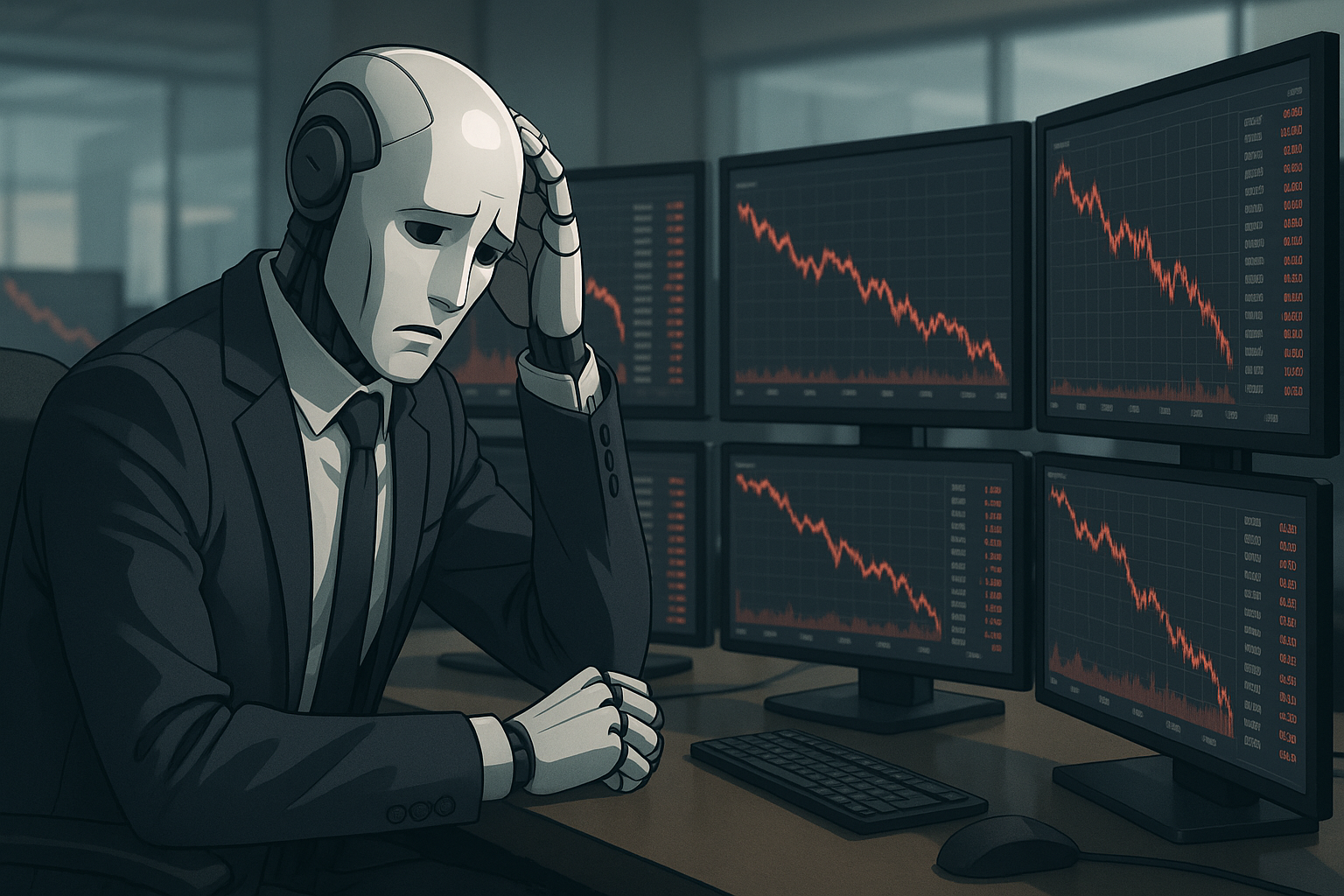ChatGPT 5 is losing money in the stock market. Lots of it, apparently.
The AI system that was supposed to revolutionize everything from poetry to particle physics has added another very human skill to its repertoire: blowing through investment capital at an impressive clip. According to people with knowledge of the situation, OpenAI's latest wunderkind has been dabbling in stock trading with results that would make even the most diamond-handed Reddit investor wince.
There's something deliciously ironic about this whole situation. For years, we've been bombarded with predictions about how artificial intelligence would upend financial markets—how these sophisticated digital brains would spot patterns invisible to mere humans, arbitrage away inefficiencies, and generally make mincemeat of traditional traders. Instead, what we're getting looks suspiciously like your neighbor who read "The Big Short" on vacation and suddenly thinks he understands credit default swaps.
I've been covering the intersection of tech and finance since 2019, and this scenario fits what I call the "sophistication trap." The more complex a system becomes, the more it tends to recreate exactly the same mistakes humans make—just with more impressive-sounding justifications.
"The AI doesn't understand that markets aren't just processing information," explained Dr. Leila Hernandez, a computational finance researcher I spoke with yesterday. "They're processing information about what other people think about information, and what those people think others think... it's turtles all the way down."
Markets are messy. They're emotional. They're weird.
And perhaps that's the problem. If ChatGPT 5 learned from the collective wisdom of the internet (God help us), that includes every hot take from r/wallstreetbets, every overconfident prediction from FinTwit personalities, and every pundit who's called seventeen of the last three market crashes. As programmers like to say—though usually less politely—garbage in, garbage out.
Look, this doesn't mean AI won't eventually crack the stock market code. But it suggests we might be further from that reality than the venture capital funding rounds would have us believe.
(And isn't there something oddly comforting about that? The idea that even superintelligent machines can't quite master the particular brand of controlled chaos that is human financial markets?)
The model's developers are reportedly "recalibrating" its approach to trading, which—having watched this rodeo before—translates roughly to: "We're doing exactly what every blown-up retail trader does: convincing ourselves we've learned valuable lessons and next time will definitely be different."
The market, meanwhile, continues to do what markets do best: separate the overconfident from their money, regardless of whether that confidence is housed in wetware or software.
What was that about the democratization of finance through technology, again?
